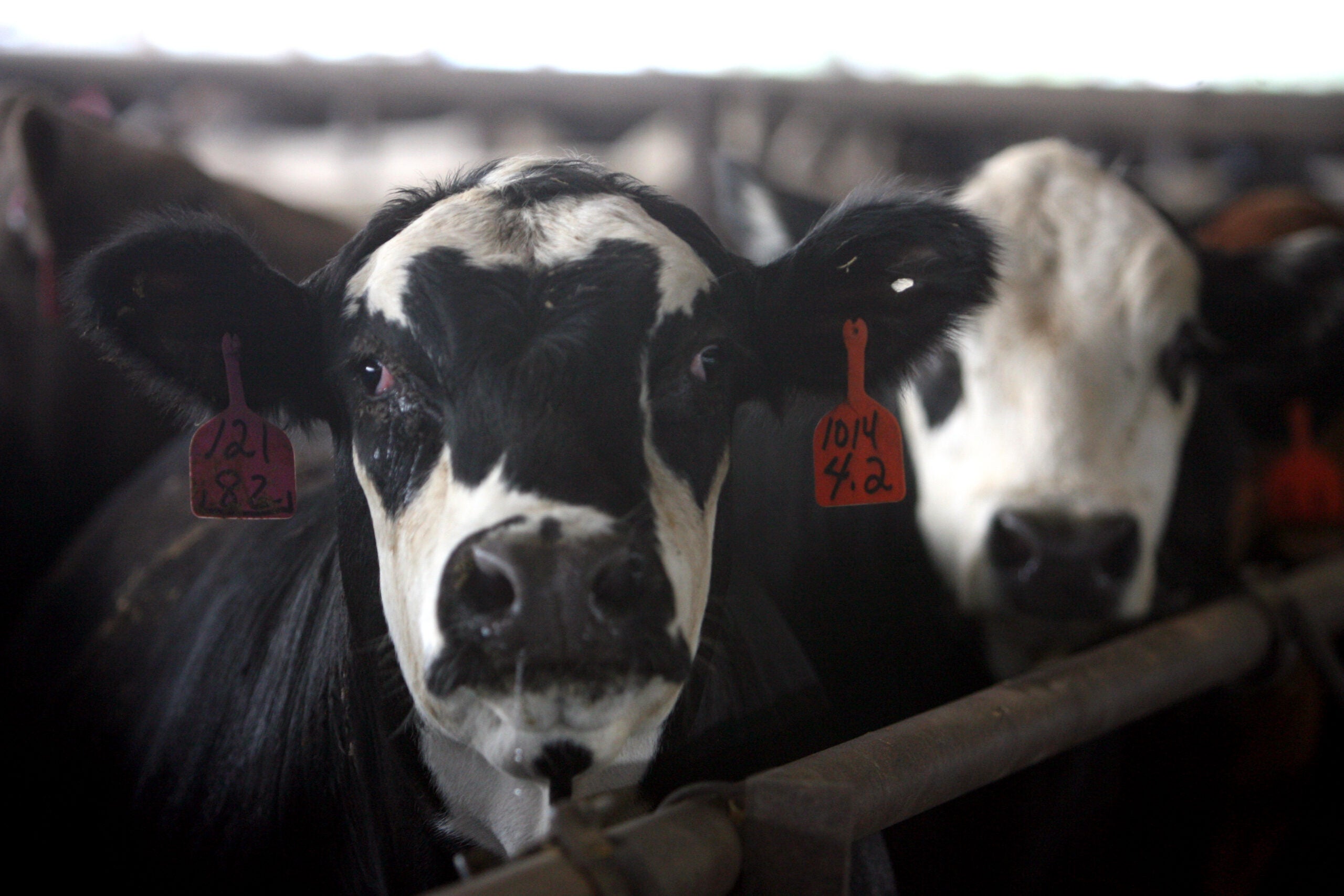Wisconsin farmer groups applauded the signing of the new trade deal between the United States, Canada and Mexico on Friday, but members of the state’s agriculture industry said they don’t expect the agreement to have an impact on prices.
Jim Holte, president of the Wisconsin Farm Bureau Federation, said this agreement won’t be transformative.
“While it’s a positive move, it certainly isn’t the big change we’re going to need for dairy farmers across Wisconsin and across this country to return to a more profitable level,” said Holte.
News with a little more humanity
WPR’s “Wisconsin Today” newsletter keeps you connected to the state you love without feeling overwhelmed. No paywall. No agenda. No corporate filter.
When the U.S.-Mexico-Canada Agreement was announced in October, U.S. dairy farmers were seen as one industry that would gain market access in Canada.
John Holevoet, government affairs director for Edge Dairy Farmer Cooperative, said it’s not a huge change for the industry.
“Largely, we’re going to see a return to status quo,” Holevoet said. “When the initial agreement was announced, there was some slight reaction in the market for milk price. Since then, that small gain has been eroded away again in the intervening time period.”
The agreement doesn’t affect the increased tariffs from the U.S. and its trading partners that have negatively impacted American farmers. Holevoet said he’s hopeful the three countries can work toward lifting those tariffs in the coming months.
“We had hoped that (the tariffs) might actually be resolved prior to the signing,” Holevoet said. “I still think there’s going to be a tremendous amount of political pressure to resolve those external tariff issues prior to Congress being expected to vote on this trade agreement.”
Holevoet said he expects Congress to consider the agreement by late winter or early spring. The agreement will have to be approved by lawmakers in all three countries before it can take effect.
Corn, Cheese Exports Could Benefit From Deal
Holte said resolving the tariff disputes could have a positive effect on the state’s corn producers because Mexico is a major export destination for U.S. corn.
Dairy groups also say the agreement will protect the future export of some Wisconsin cheese.
As part of USMCA, Mexico agreed to not restrict the use of cheese names that are tied to certain geographic areas.
Similar to France’s exclusive use of the term “champagne,” the European Union has been working to limit the use of cheese names like mozzarella and provolone to their original location.
Julie Sweney, communications director for FarmFirst Dairy Cooperative, said the move would be disastrous for Wisconsin producers.
“That’s actually a very important detail and something that the U.S. dairy industry has been fighting for for the last several years. Just because mozzarella originated in Italy doesn’t mean that it’s not mozzarella cheese that’s coming from Wisconsin,” Sweney said.
Holevoet called the promise from Mexico a “hidden gem” of the trade agreement, given that Mexico buys much of the state’s cheese exports.
“That’s a big victory for us and frankly, one that hasn’t really gotten that much attention but probably actually has a bigger impact overall on the dairy export side of things than anything we can do with the Canadians,” Holevoet said.
Wisconsin Public Radio, © Copyright 2025, Board of Regents of the University of Wisconsin System and Wisconsin Educational Communications Board.





